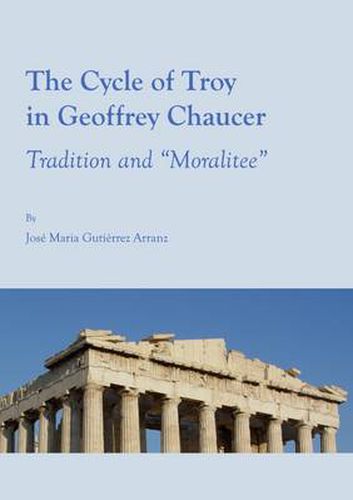Readings Newsletter
Become a Readings Member to make your shopping experience even easier.
Sign in or sign up for free!
You’re not far away from qualifying for FREE standard shipping within Australia
You’ve qualified for FREE standard shipping within Australia
The cart is loading…






The aim of the author of this book is to bring home not only to researchers, but to every kind of audience the repercussions of a literary topic that was an essential part of Classical education and, even more, a crucial subject in and outside the academic world. In ancient Greece and Rome, the Cycle of Troy was viewed as an essential compilation of information and educational models which was a vivid testimony throughout the history of Greek and Roman influence. Yet in the middle Ages, Trojan myths, just as with those concerning other characters like Hercules or Jason, were transformed into models of human behaviour, i.e. underwent the process of moralization . We say Moralitee to point out how Geoffrey Chaucer recreates those myths. Although we will extensively discuss how Chaucer recreates the Trojan myths in his works, we can anticipate what the reader will find. Chaucer manipulates his material from a multifold point of view: first of all, Chaucer was a man of his times, an unquiet mind and personality who always plays different games with that material. We might consider heroic the fact that Chaucer would pour out on his work the great background that the European writers (mainly Boccaccio, Dante, and Petrarch) supplied him (we will remember how difficult collecting information was in a period of vast lack of what we might call media ). Come what may, he projects his wisdom to stress the most surmounting aspects of the formal characterization of the myths, and integrates them into the proper contexts of his works, as one of the key forces that the audience is expected to revive with the knowledge that it is supposed to own.
$9.00 standard shipping within Australia
FREE standard shipping within Australia for orders over $100.00
Express & International shipping calculated at checkout
The aim of the author of this book is to bring home not only to researchers, but to every kind of audience the repercussions of a literary topic that was an essential part of Classical education and, even more, a crucial subject in and outside the academic world. In ancient Greece and Rome, the Cycle of Troy was viewed as an essential compilation of information and educational models which was a vivid testimony throughout the history of Greek and Roman influence. Yet in the middle Ages, Trojan myths, just as with those concerning other characters like Hercules or Jason, were transformed into models of human behaviour, i.e. underwent the process of moralization . We say Moralitee to point out how Geoffrey Chaucer recreates those myths. Although we will extensively discuss how Chaucer recreates the Trojan myths in his works, we can anticipate what the reader will find. Chaucer manipulates his material from a multifold point of view: first of all, Chaucer was a man of his times, an unquiet mind and personality who always plays different games with that material. We might consider heroic the fact that Chaucer would pour out on his work the great background that the European writers (mainly Boccaccio, Dante, and Petrarch) supplied him (we will remember how difficult collecting information was in a period of vast lack of what we might call media ). Come what may, he projects his wisdom to stress the most surmounting aspects of the formal characterization of the myths, and integrates them into the proper contexts of his works, as one of the key forces that the audience is expected to revive with the knowledge that it is supposed to own.